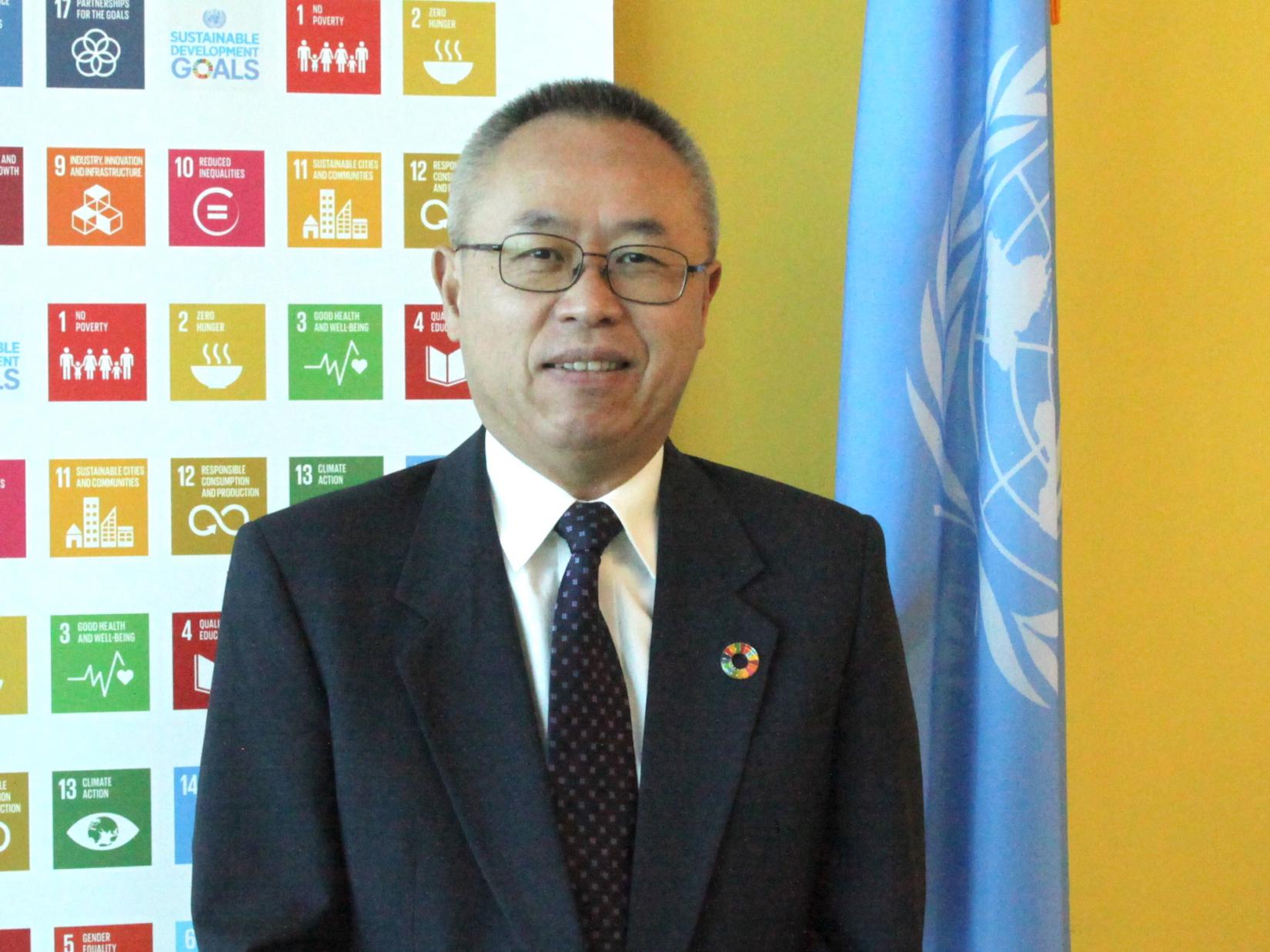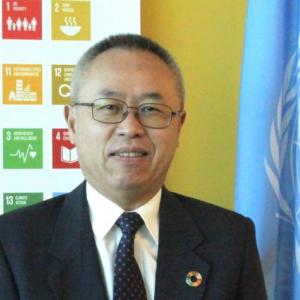Small Island Developing States Are in Hot Water: Here’s What the International Community Must Do to Help | UN DESA Op Ed
08 August 2023

By Li Junhua
The world's small island developing states (SIDS) are facing an existential crisis. Rising sea levels, warmer oceans, and more extreme weather events are threatening their very existence.
The world’s small island developing States (SIDS) are among the most vulnerable countries on the planet. And they are in trouble. Some of them are literally sinking. Or, to be more exact, the waters that surround them are inching higher, threatening to swallow them up.
Those same waters, which for millennia have been their source of food and their channel for transport, is also getting warmer and more acidic, killing fish and coral, and becoming more chaotic in its movements.
SIDS are, in fact, large ocean states: Only 3.5 per cent of the area they control is land, while 96.5 percent is ocean. The deteriorating state of oceans represent an existential threat to the entire planet and SIDS are at the front-line of this war. If we do not help them turn the tide, then the battle for our future on this planet will be lost.
Island nations face a unique set of challenges due to their small size, remoteness, exposure to natural disasters, and dependence on faraway markets and resources. These challenges are compounded by climate change, volatile global markets and the ongoing repercussions of the pandemic further. The cumulative impact of these challenges undermines SIDS’ capacity to cope with current challenges, future shocks and crises, and their efforts to build equitable societies.
Next year in Antigua and Barbuda, the United Nations will convene an international conference on the small island developing States. The agenda gives a sense of the urgency of the problem. It will tackle issues like climate change, sea-level rise, and biodiversity loss side-by-side with the global debt crisis and rising inequality. The result will be a new 10-year plan of action for SIDS, one agreed between the small island nations and international partners.
We must use the opportunity of the fourth International Conference on SIDs to help these nations overcome the barriers that hinder their progress and potential. It is our responsibility to help them survive this existential crisis thrust upon them by climate change and outdated global-level systems.
That is why this week in St. Vincent and the Grenadines, we are gathering with the governments from 16 Caribbean states, to hear firsthand an assessment of regional progress and their priorities for the new plan.
These assessments will be the foundation for a more ambitious, coherent, and effective global response that recognizes the special needs and circumstances of these countries and provides them with adequate means of implementation, including access to finance, data, technology, capacity-building, and trade.
The United Nations is committed to supporting SIDS in their quest for a more resilient and sustainable future. To most of us, these small islands may seem distant and set apart, small dots on an expansive globe, but we must remember that the problems that SIDS face today are the ones that the rest of the world must confront tomorrow.

Li Jinhua is the United Nations Under-Secretary-General for Economic and Social Affairs.

Li Junhua
Mr. Li has a long and distinguished career in the Chinese Foreign Ministry, where he has held a variety of positions, including Ambassador to Myanmar and Italy, Director General of the Department of International Organizations and Conferences, and Minister Counselor to the Permanent Mission of China to the United Nations. He has also represented China at numerous multilateral meetings, including the G20, APEC, ASEM, and BRICS.
Mr. Li is a strong advocate for multilateralism and international cooperation. He believes that the United Nations is essential for addressing the challenges facing the world today, and he is committed to working with all parties to further implement the 2030 Agenda for Sustainable Development.
In his new role as Under-Secretary-General, Mr. Li will be responsible for leading the United Nations' work on economic and social development. He will work with Member States to develop and implement policies that promote economic growth, reduce poverty, and achieve sustainable development. He will also work to strengthen the United Nations' capacity to respond to global challenges, such as climate change, food security, and inequality.
Mr. Li is a highly respected diplomat and economist with a deep understanding of the challenges facing the world today. He is a strong advocate for multilateralism and international cooperation, and he is committed to working with all parties to build a more sustainable future for all.




